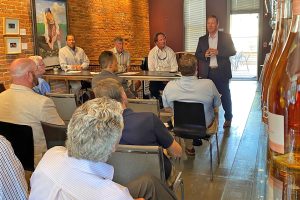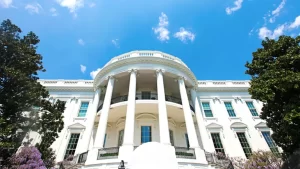EPHEMERAL STREAM LEGISLATION HEADS TO THE GOVERNOR
HB 175 Water Pollution (Hillyer, B.)
To deregulate certain ephemeral water features under various water pollution control laws. Text/Analysis
At its final session before breaking until May, the House concurred on Senate amendments on Wednesday. HB 175 will be sent to the Governor for his signature.
Along with exempting any non-jurisdictional ephemeral streams from being a ‘water of the state’, HB 175 also sets forth reasonable mitigation requirements using storm water management for impacts to such features falling under the current WOTUS definitions. Further, the bill makes changes to make the Interagency Review Team process more transparent.
Please feel free to contact OHBA with any questions.
HB 126 LIMITING PROPERTY VALUE CHALLENGES MOVES AHEAD
HB 126 had been sent to conference committee after the House refused to concur with Senate amendments. However, after being voted out of conference committee yesterday, the HB 126 conference committee report passed both the House and Senate. With the passage of HB 126, school districts and other local government entities would be significantly limited in challenging property values under a measure now headed to DeWine’s desk.
Conferees resolved significant differences in a proposal that has been years in the making. Among other varying approaches, the Senate’s version would have constituted a nearly complete ban on schools initiating cases before boards of revision.
As it moved through both chambers this legislative session, the bill also became a vehicle for addressing developer private pay agreements in lieu of taxes, which critics viewed as a way that districts could bolster their coffers while not impacting their state funding status.
The amendment adopted along party lines does the following:
- Restrict tax challenges by local entities and individuals to property they don’t own that is sold within the tax year of the complaint and goes for 10% and $500,000 more than the county auditor’s assessed value, and indexes that cap to inflation beginning in 2023.
- Require subdivisions to first adopt a resolution authorizing the complaint and mandates property owners be notified at least 7 days prior to the vote.
- Prohibits local boards from appealing BOR decisions.
- Remove a requirement that districts pass a resolution before filing a counter-complaint with a BOR.
- Remove a requirement that school districts receive notice of a complaint if the complaint alleges a change in full market value of at least $50,000, and modify the timeline in which school districts can file a complaint, to 30 days after the initial complaint is filed.
- Require a BOR to dismiss a complaint filed by a subdivision within one year after the complaint was filed if the board hasn’t yet rendered a decision.
- Retain the Senate-passed bill’s prohibition on private pay agreements, but specify that the prohibition applies only to agreements entered into on or after the bill’s effective date.
- Clarify that a local subdivision cannot adopt a resolution that authorizes the filing of complaints in future tax years.
LEGISLATIVE REDISTRICTING CONCLUSION STILL UNKNOWN
As the legislature prepares to break for a few weeks, there is no clear indication of how the legislative redistricting will be resolved. There are still maps in front of the Ohio Supreme Court, and an anticipated ruling in the federal court case expected by April 20th. There will likely be an additional primary for the legislative races, but details on the election or how the final districts will turn out is still uncertain. Stay tuned.
LEGISLATIVE UPDATE
SB 47 Overtime Pay Brenner, A. Peterson, B.
To except traveling to and from a worksite and performing certain routine tasks from the overtime pay requirement.
Am. 4111.03 and to enact section 4111.031
Signed by the Governor (Signed: April 6, 2022, Effective: July 4, 2022)
HB 107 Elevator Law Baldridge, B.
To revise the Elevator Law. Committee Hearing in Senate General Government Budget. HB 107 had a proponent hearing in the Senate committee this week. OHBA continues to discuss potential changes with the committee members and OHBA contacts involved in the residential/accessibility industry.




